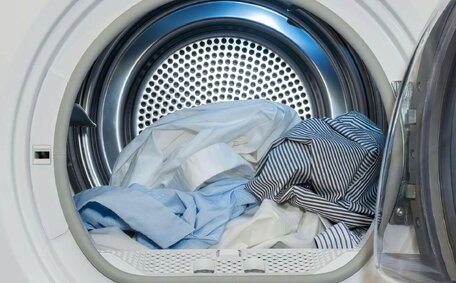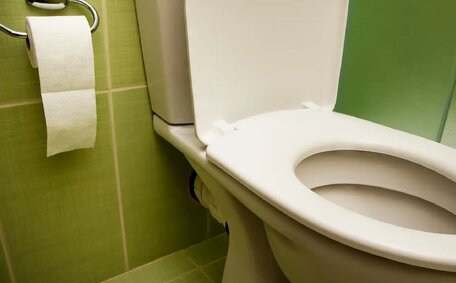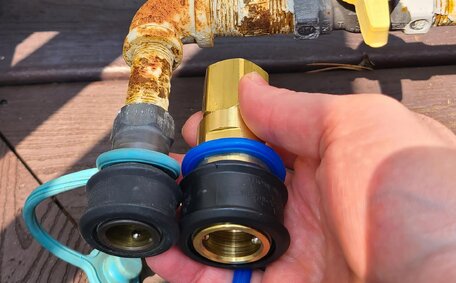Introduction to Responsibly Disposing of Your Old Hot Water System
Improper disposal of water heaters can release hazardous substances like mercury and asbestos, contaminating soil, groundwater, and landfills.
At Ryde Plumbing, we specialise in safe and eco-friendly appliance removal, including your old hot water heater.
We understand the importance of keeping dangerous metals out of landfills and extracting valuable materials, particularly metals like copper and steel, from these old appliances. Responsible dismantling and recycling of your old water heater helps conserve resources and prevents environmental contamination.
This guide outlines steps for dismantling your water heater for recycling, installation of a new unit, and alternative disposal options like donation or repurposing.
Our recycling disposal service safely extracts reusable metals from your old unit and contains hazardous components. Learn how responsible disposal methods protect the environment and support sustainable resource management.
Step-by-Step Guide to Safely Removing Your Hot Water System
Before you start
Ensure the following safety precautions are taken before starting the removal process of your hot water system:
- Turn off the electricity and switch off water supply to the water heater
- Allow the water in the hot water tank to cool when necessary
- Wear protective equipment like goggles, gloves and mask
- Ensure you have the required tools, such as wrenches, buckets, and a trolley.
Drain the tank
To drain the tank:
- Locate the drain off valve near the bottom of the tank
- Position a bucket underneath to efficiently capture the draining water
- Use wrench to slowly open drain valve and empty tank completely
- Once drained, close the valve back up
Disconnect pipes and fittings
Detach all plumbing connections from the water heater using a wrench set:
- Hot and cold water lines
- Gas line (for gas systems)
- Relief valve drain pipe
- Other accessories, such as heat pump units or temperature sensors
Take care when handling old pipes as they may contain hazardous residues.
Remove the unit
Once pipes are disconnected, you’re ready to remove the water heater unit:
- Carefully tip unit onto trolley
- Wheel it out your house through your chosen exit
- Avoid doorways or tight spaces that may damage tank
Depending on the make, model, and Energy Star rating, your unit may save significant energy and costs per year when using an efficient disposal service. Seek assistance if you cannot safely manoeuvre the unit.
Next steps for disposal
After removing your heater, contact Ryde Plumbing for eco-friendly disposal and rubbish removal services. We can assess components for recycling and ensure hazardous materials are safely contained.
Alternatively, consult our hazardous waste management guide or contact your local council for recycling centres that accept hot water heaters. Consider potential fees charged by the recycling centre.
The one thing to remember is that by following these guidelines for waste disposal, you ensure your water heater is dismantled safely. Learning to properly dispose of old water heaters prevents toxic contaminants from leaching into landfills, facilitating sustainable resource recovery.
Draining the Tank and Disconnecting the Fuel Source
Drain the tank completely
Before disconnecting fuel sources, ensure the tank is fully drained. This measure is particularly important for tanks more than 10 years old or no longer retaining their integrity, preventing spills or leaks during transport. Here’s how to drain the tank properly:
- Locate the drain valve near the base of the tank. It may be made of brass or plastic.
- Position a large bucket or container under the drain valve.
- Use a wrench to carefully open the valve and allow the water to flow out and empty into the air.
- Allow the tank to drain completely. This can take 15-30 minutes.
- Once empty, securely close the drain valve.
Disconnect electricity and gas
After emptying the tank, you can safely disconnect the energy supplies:
- For electric water heaters, unplug the unit or shut off the power at the circuit breaker.
- For gas water heaters, set the gas control valve to 'off’ and close the gas supply line.
- Ensure the pilot light is fully extinguished before disconnecting any gas fittings or pipes. Check your user manual if unsure.
Ensure all power and fuel sources are safely switched off, to reduce risk during transport and recycling. It also prepares the tank for disposal or storage if donating or repurposing to get rid of it more sustainably.
Once drained and disconnected, your water heater is ready to break down for eco-friendly removal. Contact Ryde Plumbing to help get rid of old water heaters with a disposal pick up and recycling service.
Using Proper Precautions when Handling
Use caution when moving and handling
When moving your drained water heater, your old one, make sure to take precautions against potential hazards:
- Wear personal protective equipment such as gloves, goggles, a mask, and steel-capped boots to guard against leaks or spills.
- Get help if it’s unsafe to lift the unit on your own - they can weigh over 100kg when full.
- Securely brace the tank during transport to prevent tipping or rolling
- Avoid doorways or tight spaces to prevent damage to tank or fittings
- Watch for any residues or water still inside which may leak out
Residual water or hazardous materials may persist in the tanks or pipes even after draining. Exercise extreme care when handling old systems to avoid injury or contamination.
When moving the unit, watch out for protruding fittings to prevent accidental damage. Avoid dragging the heater or placing it on unprotected surfaces to prevent scratches or dents which could impact recycling value.
Taking proper precautions ensures safe transport of your water heating system for eco-friendly disposal or recycling.
Finding Local Recycling Centers That Accept Hot Water Systems
Finding recycling centres in Ryde, Sydney
Several metal recycling centres in the Ryde area accept old hot water systems:
- Ryde Metal Recyclers offers a free drop-off service for hot water heaters, including your old one – it’s recommended to call and confirm specifics. Call ahead to find out they accept your specific water heater model and to inquire about any fees or restrictions.
- Sims Metal Management - See our guide on whether Sims accepts your specific hot water systems model at their recycling facilities. Fees might be charged based on the size and weight of your unit.
- Other nearby scrap yards may accept hot water heaters; it’s best to check with local recycling centres. Some may charge drop off fees.
Utilising pick-up services
Alternatively, many metal recycling companies offer services to help you take your old hot water systems. This saves you the effort of transporting it yourself.
Ryde Plumbing offers a convenient removal service to recycle your hot water unit safely. As industry experts, we ensure optimal recycling and conservation of resources.
Preparing your unit for drop-off
Before you buy new and drop off your old system to make room for a new water system at a recycling centre, be sure to:
- Fully drain the tank
- Disconnect all pipe fittings
- Switch off any connected fuel sources like electricity or gas
Preparation simplifies transportation and aids in the safe disposal of your unwanted water heater. It also maximises the amount of recyclable metal extracted during processing.
Recycling your old water heater instead of buying a new one conserves resources and prevents hazardous waste from reaching landfills. Contact Ryde Plumbing, where your water heater can recycled in an eco-friendly manner, or inquire at local metal recycling companies.
Identifying the Metals and Components That Can Be Recycled
Metals and parts that can be recycled
Hot water systems are comprised of various recyclable metals and components, preventing the need for landfill disposal:
- Steel - The outer shell or tank is typically made of steel. This can be melted down and reused.
- Copper - The internal piping and fittings usually contain valuable copper that is highly recyclable.
- Aluminum brass - Some models utilise aluminum or brass for drain valves, fittings, or an anode rod.
- Insulation materials - The internal insulation inside tank may be salvageable for reuse, depending on its condition.
- Heating elements - Electric heating elements can be removed and recycled.
Dismantling instead of direct disposal allows nearly 90% of your water heater’s materials to be recycled in an eco-friendly way. The metals hold the most recycling value, illustrating how to dispose of resources responsibly and help conserve natural resources.
Maximising recycling value
To maximise the recycling value:
- Fully drain tanks before removal
- Separate components like valves or heating elements
- Clean metals free of residue buildup
This allows you to dispose any impurities for easier processing and extraction of pure materials. Contact Ryde Plumbing to learn about our eco-friendly recycling services tailored for your old hot water unit.
Exploring Alternative Reuse Options Such as Donation
Donate or repurpose functional water heaters
If your water heater is relatively new or gently used, think about donating it or repurposing the tank during the installation of a new device instead of disposing it. Many charities accept donations of second-hand hot water units to support those in need.
Options to donate or repurpose your unit to avoid buying a new hot water system include:
- Charities like the Smith Family, Vinnies, or Salvos Stores can help you get rid of old but functioning electrical goods, including hot water systems.
- Community groups might accept donations to repurpose tanks, for example, as water collection containers in community gardens.
- Give away your old tank to metal artists or innovators who may repurpose it into something new, such as a fire pit or brewing vessel.
When donating your working water heater, be sure to:
- Fully drain and disconnect the unit prior to transportation or collection
- Check any delivery or pickup requirements with the recipient charity or organisation
- Provide clear instructions on fuel type, tank capacity, workings condition etc to assist the new user
Creativity can extend the life of heaters repurposed for those in need. This reduces waste and helps support community initiatives. Contact local charities to explore donation as a sustainable disposal solution.
Highlighting the Environmental Benefits of Responsible Disposal
Protecting our environment through proper disposal
Disposing of your old hot water system responsibly has tremendous environmental benefits. By recycling the metals and hazardous components, we prevent contaminants from leaching into soil and groundwater. Copper, steel and other valuable materials can be extracted and reused instead of relying on raw resource mining.
Conserving these resources reduces energy consumption, carbon emissions, and other impacts from extraction and manufacturing. Responsible recycling also minimises landfill waste, as water heaters that are not recycled can take up significant space and may contain toxic residuals.
Keeping hazardous waste contained
Within hot water system tanks and pipes lurk hazardous substances like mercury, lead, or asbestos residue. Understanding the correct disposal methods for old units helps prevent toxic materials from polluting the environment and damaging ecosystems.
Proper dismantling, handling, and ensuring your heater new or old is disposed of by waste management experts, ensures these dangerous components are safely contained. Ryde Plumbing ensures top-notch recycling with no harm to the environment.
Preserving nature for future generations
By prioritising sustainability and actions such as recycling every year, we see they effectively preserve our natural resources for future generations. The metals we recycle reduce the demand for continuous resource mining as our population grows.
Less waste in landfill also means less environmental impact over time. Proper disposal today safeguards our ecosystems and wildlife for future generations.
Contact Ryde Plumbing to give your old hot water system new life. Our hazardous waste removal service recycles your unit safely while conserving our shared natural resources.






